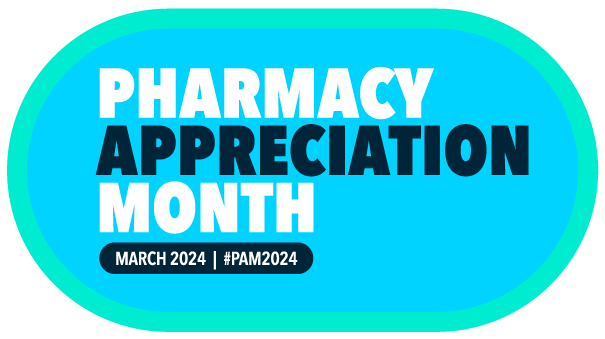Pharmacy Check-in: Cynthia Leung

Cynthia Leung, RPh. BScPhm, PharmD, CDE (she/her)
Senior Pharmaceutical Review Officer
Canadian Agency for Drug and Health Technology (CADTH)
Kingston, ON
Cynthia Leung received her BScPhm in 1999 and PharmD in 2008 from the University of Toronto. In 2000, she completed an industrial pharmacy residency program at Nycomed Amersham, specializing in nuclear pharmacy. Since then, she has worked in a variety of pharmacy practices including hospital, community, long term care, home care and primary care. Currently, she is a senior pharmaceutical review officer at CADTH and is a Professional Master of Policy Administration (PMPA) candidate with the School of Policy Studies at Queen’s University in Kingston, Ontario.
In her role as a senior pharmaceutical review officer (PRO), Cynthia leads multidisciplinary CADTH research teams to prepare and write reports that address specific research and policy questions regarding pharmaceutical products. She also participates in a range of other activities, including conducting literature reviews and other relevant research activities, leading multidisciplinary review teams, project management and committee activities and mentoring and guiding colleagues and external partners.
Q&A with Cynthia
We caught up with Cynthia during Pharmacy Appreciation Month to talk about her role as a senior pharmaceutical officer and what the power of pharmacy means to her.
This year’s Pharmacy Appreciation Month (PAM) theme is “The power of pharmacy.” What does that mean to you?
Pharmacy has always been a profession with great power to support the public by providing the right medicine to treat a disease or manage a symptom. Recently, we have expanded our scope to do much more. From providing immunization to supporting patients with managing various minor ailments, our professional power has become more noticeable, transparent and greatly appreciated. To me, this year’s theme of “The power of pharmacy” means we have a responsibility to capitalize on the momentum we have built, and to expand on this power to continue to benefit our patients, our communities and the public we serve.
One of the most exciting things about a career in pharmacy is the variety of roles pharmacists take on and the impact they can have in so many different ways. Tell us about your role and what makes it unique?
As a senior pharmaceutical review officer, I help prepare and write reports to support any upcoming pharmaceutical reviews, to summarize key evidence and to provide insights that are important for the committee. My current role helps me to appreciate how medication policy decisions are made that impacts on patient access of various medications.
What inspired you to take on this role? What makes it rewarding?
When working with patients and prescribers, I understand how different treatments are prescribed based on available clinical evidence and patient-specific factors. However, there is often a knowledge gap in how funding decisions are made. This role helps me to understand, what other factors in addition to clinical evidence, influence a funding decision that impacts patient access.
The most rewarding element of this role is that I can see how my work contributes to important policy decisions and helps patients improve access to important medications.
What is one practice area where you feel pharmacists could increase their role that would lead to better patient outcomes?
I am a firm supporter of deprescribing, an area that has seen significant development in recent years. Pharmacists should support patients to deprescribe when treatment is no longer offering net benefit. For this to be a sustainable practice, a reimbursement infrastructure should be developed for pharmacists who actively support these deprescribing activities.
What is one thing you wish all patients knew about what pharmacists can do?
Pharmacists are skilled at knowing what treatment options are available and their safety profiles. Pharmacists can work collaboratively with other prescribers to help select the optimal treatment options based on patients’ unique profiles. Pharmacists are also very knowledgeable in recognizing drug-induced side effects and drug interactions and can help to develop an appropriate management plan. These skillsets are often underutilized.
What makes you proud to be a pharmacist?
There is a lot that goes into the profession. At the end of the day, I am most proud when my patients find interactions with me helpful, whether that be providing the right medicines, teaching them how to administer medicines properly or educating them on important points related to their medications. The most rewarding part is the interactions with my patients.
Is there anything else you’d like to share about your practice, or about anything else that is important to you?
The profession is going through many changes and challenges over the years. It’s important to continue to embrace them with a positive attitude and be part of the solution.

